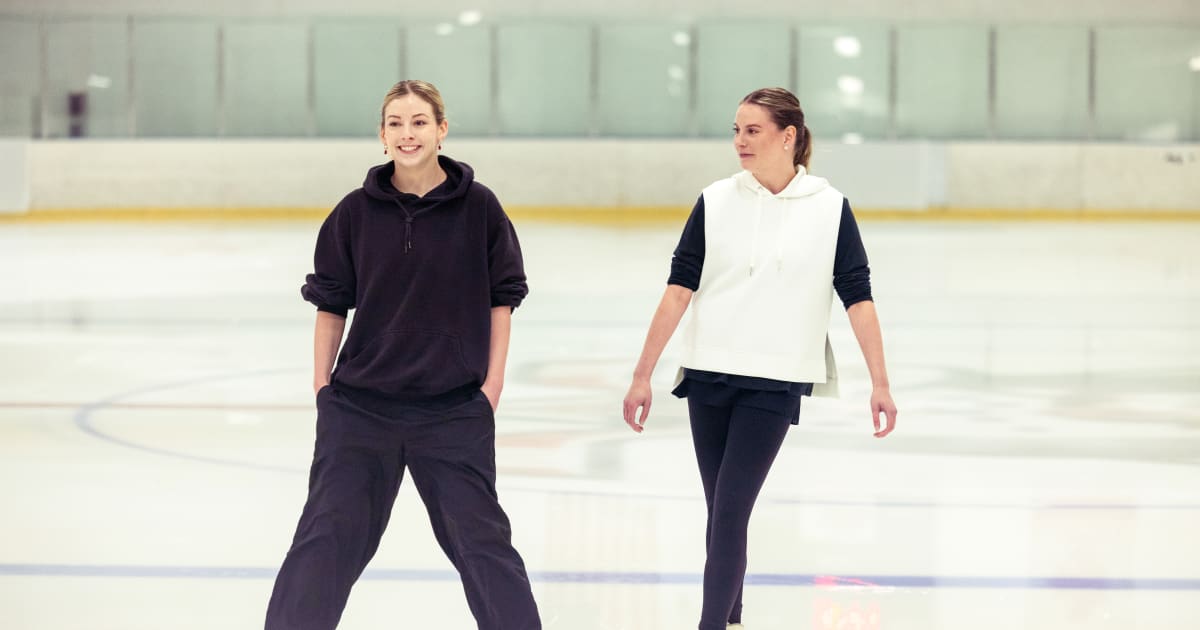As a figure skater in the women’s singles event, Gracie Gold took to the ice alone.
Yet behind the scenes, twin sister Carly was always a steadying presence during the highlights of a career that resulted in a team Olympic bronze medal from Sochi 2014, and through the dark days of struggling with her mental health.
“If it weren’t for Carla, there wouldn’t be a Gracie,” the two-time national champion told Olympics.com in a documentary filmed for World Mental Health Day on 10 October. “I’m the sister that’s the Olympian, but she really is my better half.”
For the International Olympic Committee’s ‘Let’s Move?’ campaign, which encourages everyone to reach out to a friend, colleague, or loved one who might need support and invite them to move together, the pair took to the ice to chat, instigated via a phone exchange as simple as:
“Hey, what’s up?”
“I thought we could go skating together.”
“Oooh, that would be fun.”
“Look forward to it.”
On the ice, a surface familiar to both, having started skating together as kids, Carly reminisced about her own achievements in the sport, including achieving her dream of competing at the senior level at the U.S. Championships, before retiring in 2016.
“I just never learned how to do a butterfly,” stated Carly in the video for the International Olympic Committee, “but yours was always spectacular.”
Carly’s journey in itself was also a challenging one, with suggestions she find a different hobby due to her sibling’s success being swatted away by the younger of the two by 40 minutes.
“For me, it was never about sibling rivalry; it was my own passion for the sport that pushed me forward. Despite hardships and many disappointments, I would not change a second of my journey.”
And while Gracie was lauded in the sport after bursting onto the scene as a big jumping 17-year-old, Carly knew the truth.
“Remember when I texted you at Skate America and you told me I should just quit?” posited Gracie while the pair skated together.
“I had to say something. You were miserable,” said Carly.
“I didn’t know how to stop or say that I needed help.”
“I know.”

